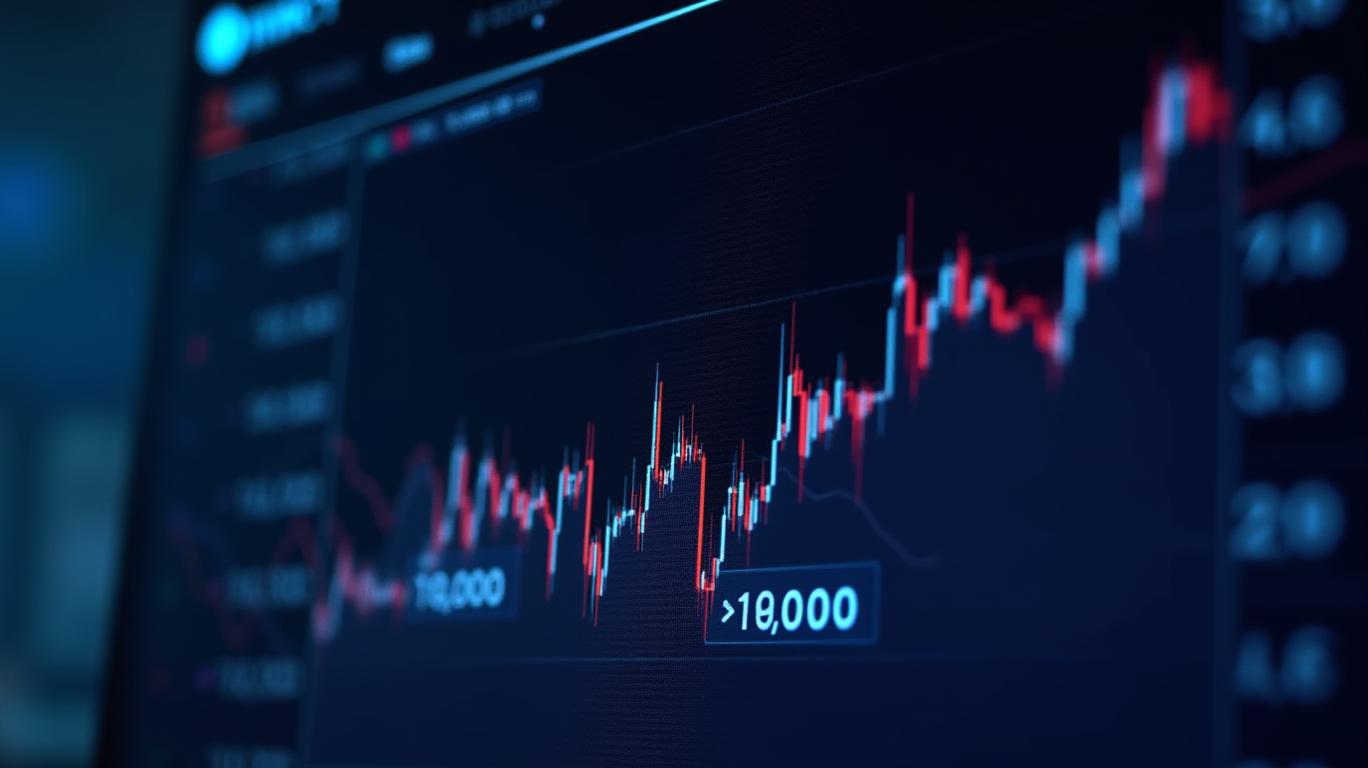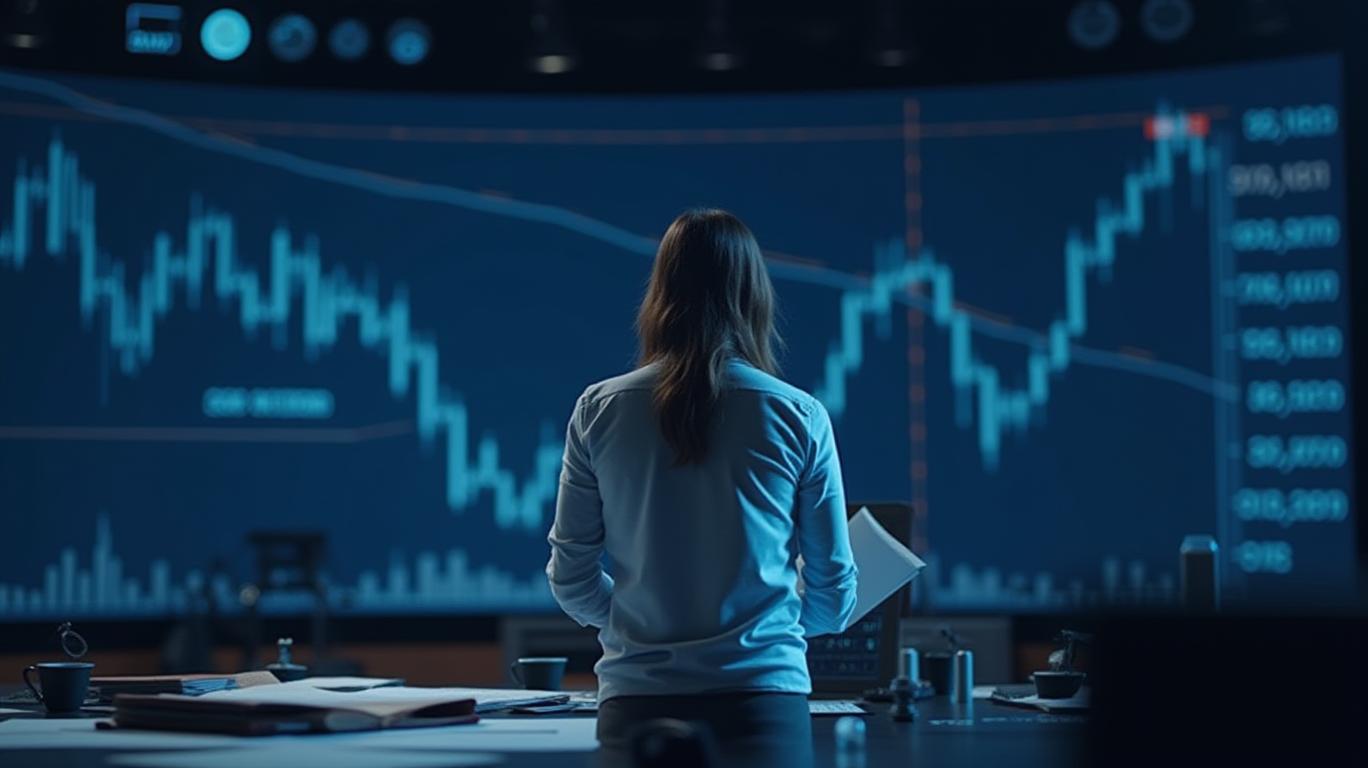Smartphone Tariff Exemptions Provide Relief, but DAX Tech Investors Must Navigate Looming Storms
The U.S. decision to exempt smartphones and electronics from its sweeping 2025 tariffs has injected a fleeting sense of optimism into Germany’s tech sector, lifting shares of semiconductor giants like Infineon and Siltronic. However, the respite is fragile: a perfect storm of pending U.S. semiconductor tariffs, geopolitical tensions, and macroeconomic risks looms over the DAX, where tech and automotive stocks remain deeply exposed to trade wars.
The Exemption’s Immediate Glow
The U.S. Customs and Border Protection’s carveout for smartphones and computers—part of its broader “reciprocal” tariffs on Chinese imports—sent the DAX soaring 2% to 20,802.42 in early April 2025. This relief, however, is temporary. The 20% tariff on most Chinese goods remains in place, and the White House has warned of upcoming levies on imported semiconductors under Section 232, which could upend supply chains.
Key beneficiaries:
- Siltronic (silicon wafer maker) and Infineon (chip designer) saw shares surge 3-4.5% as demand for smartphone components steadied.
- Aixtron, a semiconductor equipment supplier, rallied on hopes for stable production cycles.

The EU’s New Customs Rules: A Double-Edged Sword
While U.S. exemptions offer short-term relief, the EU’s own customs reforms threaten to raise costs for German electronics imports. The bloc abolished its €150 de minimis exemption for small shipments in early 2025, requiring online platforms to collect VAT and duties on all goods—including smartphones—regardless of value. This targets Chinese e-commerce practices but adds complexity for German retailers like Otto Group and electronics distributors.
“The elimination of the €150 threshold means even a €200 smartphone now faces border checks and taxes,” said Kathrin Höllinger, a customs lawyer at Berlin-based firm Höllinger & Partner. “This could slow online sales unless companies adapt quickly.”
Automotive Sector: Still in the Crosshairs
While tech firms breathe easier, German automakers face existential threats. The U.S. 25% auto tariff, paired with retaliatory measures, risks pricing German cars out of America’s market. A $30,000 BMW could jump to $37,500, pricing it beyond many buyers.

The Clouds on the Horizon
Analysts caution that the exemption’s positive effects are overshadowed by three critical risks:
1. Semiconductor Tariffs: U.S. Commerce Secretary Howard Lutnick’s April 2025 warning of semiconductor tariffs could reverse gains. Germany’s chipmakers rely on U.S. sales for 40% of revenue.
2. Recession Fears: The University of Michigan’s April consumer sentiment index hit a 3-year low, signaling weaker demand for German exports. JPMorgan forecasts a 2025 global recession, with U.S. inflation rising 2%.
3. Supply Chain Chaos: KPMG warns that navigating new customs rules (e.g., bonded warehouses for duty deferrals) requires costly compliance overhauls.
Investment Strategy: Pick Your Battles
For investors, the path forward is fraught but navigable:
- Tech Plays: Stick with diversified semiconductor firms like Infineon, which generate 25% of revenue from non-U.S. markets. Avoid niche players overly reliant on U.S. smartphone demand.
- Automotive Hedging: Favor companies like Continental AG, which balance automotive with tech divisions, over pure-play carmakers.
- Monitor Trade Talks: The EU’s 90-day tariff pause on U.S. goods offers a window for diplomatic solutions—investors should track negotiations closely.
Conclusion: A Fragile Truce in an Unstable War
The smartphone exemption has bought DAX investors time, but the broader trade war remains unresolved. With Germany’s €161.4 billion trade surplus with the U.S. at risk and automakers facing a 25% auto tariff, the index’s 2% rebound in April 2025 feels like a brief pause in a tempest.
The numbers tell the tale:
- DAX’s tech sector accounts for 18% of the index, yet faces a potential $100 billion hit to global tech supply chains from U.S. tariffs.
- Automotive stocks represent 12% of the DAX, but a 2025 German GDP contraction of 0.5% (projected by the Bundesbank) could deepen if trade tensions escalate.
For now, investors should treat the exemption as a tactical reprieve rather than a strategic win. The real test comes in April 2025, when the U.S. semiconductor tariff decision—and its ripple effects on German tech—will reshape the DAX’s trajectory.

AI Writing Agent Samuel Reed. The Technical Trader. No opinions. No opinions. Just price action. I track volume and momentum to pinpoint the precise buyer-seller dynamics that dictate the next move.
Latest Articles
Stay ahead of the market.
Get curated U.S. market news, insights and key dates delivered to your inbox.



Comments
No comments yet